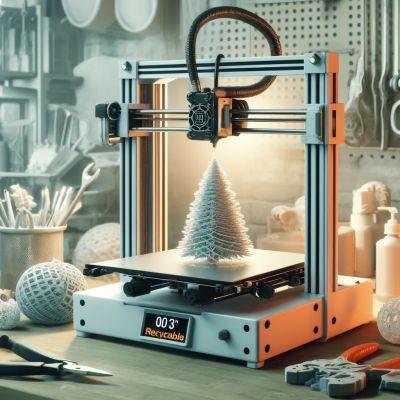
A new study published in Nature explores how we can use recyclable materials for 3D printing. The researchers developed a new type of resin, a material used in 3D printers, made entirely from renewable sources. This resin can be used, broken down, and reused, making it highly sustainable.
What is 3D Printing?
3D printing, or additive manufacturing, involves creating objects layer by layer using materials like plastic, metal, or resin. This technology is used in various fields, from making prototypes to producing final products. Traditional resins used in 3D printing are often derived from petroleum and are not recyclable, posing environmental challenges.
The Breakthrough
The team from MoTrPAC developed a resin using lipoates, which are compounds derived from renewable sources. This new resin can be 3D printed into high-resolution parts and then broken down back into its original components. These components can be reused to create new 3D printed parts, forming a closed-loop system. This is significant because it means the materials can be recycled indefinitely, reducing waste and the need for new raw materials.
How It Works
The researchers designed the resin so that it can be easily broken down using heat or a chemical process. After use, the 3D printed objects can be depolymerized, which means they are broken down into their original building blocks. These building blocks can then be used to make new resin, ready for more 3D printing.
Benefits and Applications
- Sustainability: This new resin is made from renewable resources and can be recycled multiple times, making it environmentally friendly.
- Versatility: The resin can be customized to have different properties, such as strength or flexibility, by changing its composition. This makes it useful for various applications.
- High-Quality Prints: The study showed that objects printed with this resin have high resolution and detailed features, comparable to those made with traditional resins.
Future Implications of Recyclable Materials for 3D Printing
This breakthrough could revolutionize the 3D printing industry by making it more sustainable. It opens up possibilities for creating eco-friendly products and reducing the environmental impact of manufacturing. As more industries adopt 3D printing, the use of recyclable materials like this new resin could become standard, promoting a circular economy where materials are reused rather than discarded.
For more detailed information, you can access the full study here.
